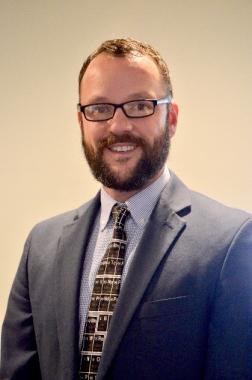Speaker: Dyron Hamlin, MS, PE, CIH – Chemical Engineer
 Mr. Hamlin is a Registered Professional Chemical Engineer and Certified Industrial Hygienist with GHD. Mr. Hamlin has over 20 years’ experience conducting air monitoring, air dispersion modeling, environmental fate assessments, and other engineering analyses for emergency responses, transportation and industrial risk assessments, and litigation projects. Mr. Hamlin has responded on-site to over 100 major hazardous materials emergencies, and he has performed dispersion modeling remotely for over 200 more chemical releases and release prevention scenarios. Mr. Hamlin has served as an expert for litigation in multiple cases and as an expert in the oil & gas, chemical, manufacturing and transportation sectors regarding matters related to Toxic Inhalation Hazards (TIHs). Mr. Hamlin has also been retained to evaluate, through field testing, new technologies in development-stage air monitoring equipment and the fate and transport of large-scale TIH releases.
Mr. Hamlin is a Registered Professional Chemical Engineer and Certified Industrial Hygienist with GHD. Mr. Hamlin has over 20 years’ experience conducting air monitoring, air dispersion modeling, environmental fate assessments, and other engineering analyses for emergency responses, transportation and industrial risk assessments, and litigation projects. Mr. Hamlin has responded on-site to over 100 major hazardous materials emergencies, and he has performed dispersion modeling remotely for over 200 more chemical releases and release prevention scenarios. Mr. Hamlin has served as an expert for litigation in multiple cases and as an expert in the oil & gas, chemical, manufacturing and transportation sectors regarding matters related to Toxic Inhalation Hazards (TIHs). Mr. Hamlin has also been retained to evaluate, through field testing, new technologies in development-stage air monitoring equipment and the fate and transport of large-scale TIH releases.
GHD is one of the world's leading professional services companies operating in the global markets of water, energy and resources, environment, property and buildings management, and transportation. It provides engineering, architecture, environmental and construction services to private and public sector clients. Established in 1928 and privately owned by its employees, GHD employs 9,000 people in 200+ offices to deliver projects with high standards of safety, quality and ethics across the entire asset value chain.
Topic: The Increasing Influence of Background Air Quality on Compliance
In recent months, the lowering of atmospheric standards in both ambient and workplace settings has created an interesting compliance challenge. Industry compliance and EH&S professionals often face situations in which there is a significant influence of background air quality in regards to compliance activities. This presentation will focus on specific project examples of background air quality creating a narrow window into which compliance activities must be undertaken, and some strategies for conducting those evaluations. These include: Particulate Matter, Nitrogen dioxide (NO2), Benzene, and Ethylene Oxide.
Background levels of PM2.5 have been observed in multiple construction projects within 1 µg/m3 of project compliance requirements, which in some cases are compared to the National Ambient Air Quality Standard (NAAQS) of 12 µg/m3. Measurements of nitrogen dioxide (NO2) in workplace situations must now consider a workplace standard of 200 ppb (ACGIH TLV), as well as a 1-hour average NAAQS of 100 ppb. These considerations must take place in industrial areas in which average NO2 levels are nearly half of these standards on an annual basis. In high-traffic areas, one-hour NO2values have been observed at 2-3 times annual-average concentrations. The new EPA Refinery Sector Rule (RSR) includes an air quality standard for benzene. Refineries must demonstrate compliance at their fencelines by measuring benzene levels. The background concentration of benzene in urban environments has been documented to be higher than the action level established by the new rule; thus, the rule essentially requires continuous benzene-specific monitoring for the future as far as we can see. Finally, ethylene oxide has come under recent scrutiny as the USEPA has lowered its inhalation unit risk factor by up to 60-fold, leading to levels below what can currently be detected by known laboratory methods.
As these regulations become more stringent, the scrutiny on air quality in industrial environments will continue to narrow. This presentation will summarize the above examples, and focus on how to deal with these issues from a sampling, documentation, and control standpoint.
Costs:
There is no registration fee. The lunch menu ranges from $8 to $12, and the South Texas Section will subsidize lunches by $5 per attendee.STS members as well as non-members are welcome to attend. We only request that you pre-register at the STS-AIChE.org website so we can get an accurate head count for the restaurant.
Have suggestions, ideas, comments or want to recommend a speaker for future 3FPNF events? Please contact David Alexander at 832-372- 2926 or davidalexanderlaw1249@gmail.com. Alternative contact = William Pittman williampittman@micropackamericas.com.
Need career advice or guidance? STS is now offering a free mentoring service for its members, courtesy of our panel of senior member volunteers. For more information, contact jkumana@aol.com.
- Log in to post comments
